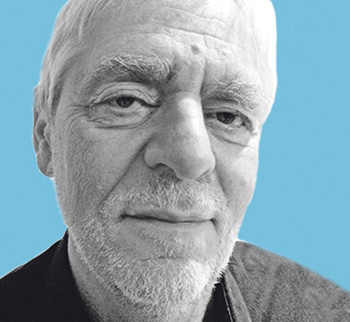The purpose of music is to help us relate to other people, and the singing voice, especially, brings us closer to each other. This is the basic premise of opera: to tell a story and help us sympathize with others, or at least understand what is going through their mind.
Over the years, different composers have concentrated on different aspects of this project. Donizetti and Handel focused on the human voice, Puccini focused on jolting us with shocking stories, while Wagner thought in terms of Hollywood blockbusters long before they existed. Now along comes John Adams, upsetting us all by turning newspaper headlines into song.
His opera, The Death of Klinghoffer, is ending a run at the Metropolitan Opera in New York, where it has attracted considerable attention due to its subject matter. The Death of Klinghoffer deals with the Palestinian terrorist attack on the cruise ship Achille Lauro in 1985, in which Leon Klinghoffer, a wheelchair-confined American Jew, was killed and thrown overboard.
Many newspapers, including The CJN, have reprinted Klinghoffer’s daughters’ objections to this work (their essay also appeared in the printed program for the opera). But many did not at all feel, as the Klinghoffers felt, that the opera mistreated Leon Klinghoffer. The Aria of the Falling Body, sung at his death, far from deserving the ridicule it has attracted (often from people who have not heard it), is in fact a dignified Kaddish and is followed by a moving soliloquy by his wife Marilyn, with which the opera ends.
There is indeed a problem with the opera. The libretto was written by Alice Goodman, who cannot seem to accept that Jews are entitled to live in their own land. But Goodman’s personal beliefs do not surface in the opera. Some commentators have objected to a presumed “moral equivalence” in the opera – that is, its portrayal of terrorists as worthy of equal consideration to Jewish victims. But the opera does not provoke such a response at all – the text is too opaque to be regarded as giving any of the protagonists an intelligible “argument for discussion.”
It was certainly an intense experience to see such a Jewish work performed, where the audience laughs when Marilyn Klinghoffer refers to the initial hijacking as “meshugass.” (The Met has certainly come a long way from its early days, when it only with difficulty allowed the first Jew onto its board, an experience summarized by his remark: “A kike is a Jewish gentleman who has just left the room.”)
The music critic at the London Jewish Chronicle found nothing to object to in The Death of Klinghoffer, except that he found it boring. That’s not at all how I would describe Adams’ colourful rhythms and orchestration. This work is not “operatic”– that conventional style which the original director, Peter Sellars, described pejoratively as “nice music for nice people” – although it certainly requires good singers. Many of the myriad commentators have half-heartedly defended The Death of Klinghoffer on the grounds that art is meant to provoke us. I think that Handel or Mozart would agree with this argument, but only up to a point. They thought that art was primarily meant to console us. Sellars himself has emphasized the role of art, and opera in particular, to heal.
This work is not what you might think of as “opera.” It is more a sombre commemoration of a tragedy with refined music. It has a hyper-verbose text – the classic librettists of the past would tear their hair (or wigs) out if they heard it – that is almost opaque and monumental.
Is The Death of Klinghoffer worth seeing? Certainly, if you are responsive to music and the expressive powers of a great contemporary composer.
Charles Heller is an associate member of the Canadian Music Centre, and the award-winning author of What To Listen For in Jewish Music.
